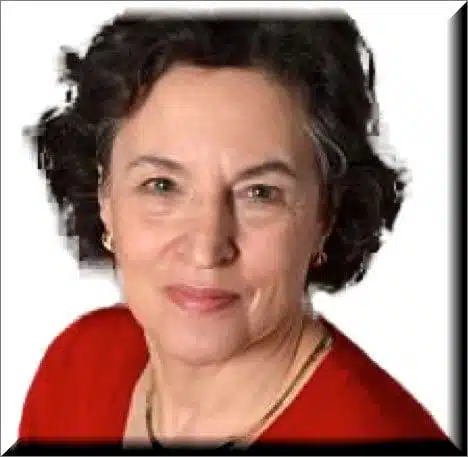The Questions We All Need to Ask As We Grow Older
Posted in growing older in New York City, Questions to ask as we grow older
Elder care expert, author and advocate Joanna Leefer recently held a very frank discussion about the nuts and bolts of growing older in New York City.
While the city has made great strides to safeguard older residents with expanded senior activities, safer street crossings, and additional amenities like benches and senior-only green space, Leefer’s lecture, Aging in Place in NYC, set out to educate attendees about the many pitfalls New York’s seniors still face.
Leefer highlighted these challenges with her own family’s experience hiring a private aide for her father, who was beginning to show signs of dementia. The private aide, Rose, had been a nurse in Hungary.
“My brother and I said, ‘we’re smart enough to do this ourselves,’” Leefer recounts.
The arrangement was working well.  Joanna loved that Rose would occasionally invite her daughter and mother to the home, giving Joanna’s father a “second family.” When Rose asked Leefer if her cousin, Thomas, could stay for a few weeks while he looked for a place of his own, she assented. She often caught Thomas and her father in the living room, watching football and chatting through the afternoon.
Joanna loved that Rose would occasionally invite her daughter and mother to the home, giving Joanna’s father a “second family.” When Rose asked Leefer if her cousin, Thomas, could stay for a few weeks while he looked for a place of his own, she assented. She often caught Thomas and her father in the living room, watching football and chatting through the afternoon.
A few weeks later, Thomas let slip that he was paying Rose rent. It turned out Thomas wasn’t her cousin, he was her tenant.
While Joanna admits that her experience with Rose was “more good than bad,” she used the story to illustrate how honesty and due diligence are central to safely aging in place. When asked by an attendee how to identify the best home care or elder care facilities, Leefer’s advice was simple – “Ask questions. Lots of questions.”
Below are some of the biggest takeaways from the meeting:
Regarding home care:
- While private aides can do great work, hiring them completely “off the books” is a violation of state and federal labor laws. Elder care advisor Gideon Y. Schein added that to stay on the right side of the law and avoid fines starting at $5,000 a week, private clients should hire a private payroll accountant to stay in legal compliance.
- Leefer said that while private home care agencies provide additional oversight into the care being provided, and can better handle staffing problems if a caregiver needs time off, no two agencies are alike.
- Among the questions you should ask when considering an agency?
How does the agency find and vet its caregivers?
What plans does the agency have in place in the event of a major emergency? Will the aide stay with the client?
Consider cultural differences – what languages do the aides speak, can the client speak to and understand their aide? What types of meals do the aides typically cook?
Regarding assisted living facilities and other group settings:
- Pick a geographic area you or your loved one wants to live in, then drill down through facilities in that area. Making multiple visits before and during service is the only way to know for certain how a facility performs.
- When visiting, consider how engaged, hygienic and happy the residents appear to be. If people are sitting around with nothing to do, the facility smells dirty, or there are not enough staff members available to care for the residents, look elsewhere.
- Always look closely at your contract. Along with room and board, most facilities offer additional care options for residents with greater needs. These costs can grow over time and greatly impact the costs of staying.
- What rules does the facility’s contract state? If a resident has sudden outbursts or wanders in the night, do they run the risk of being asked to leave?
- Take Medicare facility reviews with a grain of salt. A 2014 New York Times investigation found that these reviews are based largely off of self-reported data that is not verified by Medicare. Trust what you see during your visits.
Above all else, Leefer told the audience that they need to be honest with themselves as they age and their needs begin to change. While aging in one’s own home is oftentimes the ideal, factors like difficult-to-navigate stairways in walk up buildings, a lack of social activities to keep people engaged and increasing isolation can and should make people consider changing their plans.
Leefer recalled a past client with dementia, who spent more and more time watching television at home, the isolation possibly speeding along her decline. When renovations to her apartment necessitated a brief stay at an assisted living facility, she met a gentleman with similar interests, as well as similar medical conditions. After seeing the client reenergized by the experience and reengaged by the facility’s staff, Leefer suggested the client remain in place. “It was like night and day,” Leefer said. “She loved his jokes, it didn’t matter that he told the same ones every day.”
SelectCare’s staff is proud to provide accountable, trustworthy services in a city as well-suited for growing older as New York. If you or a loved one would like to learn more about how we help our clients make the most of life in New York, call us today.
For more information about the resources that make New York City a great place to grow older, please review Senator Liz Krueger’s Senior Resource Guide, as well as the NYC Department for the Aging’s resource and benefits directory.
